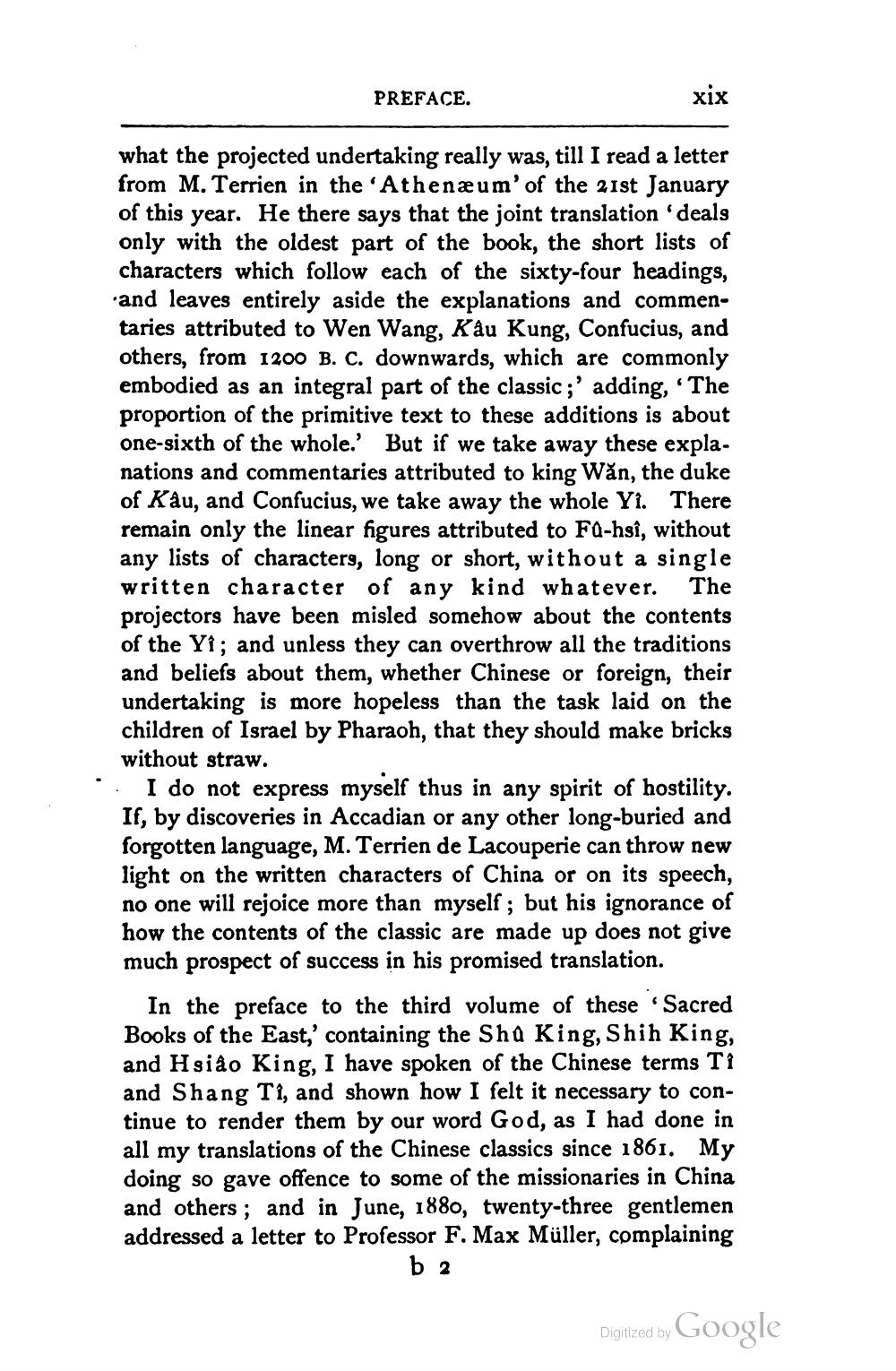________________
PREFACE.
xix
what the projected undertaking really was, till I read a letter from M. Terrien in the 'Athenæum' of the 21st January of this year. He there says that the joint translation 'deals only with the oldest part of the book, the short lists of characters which follow each of the sixty-four headings, and leaves entirely aside the explanations and commentaries attributed to Wen Wang, Kâu Kung, Confucius, and others, from 1200 B. C. downwards, which are commonly embodied as an integral part of the classic;' adding, “The proportion of the primitive text to these additions is about one-sixth of the whole.' But if we take away these expla. nations and commentaries attributed to king Wăn, the duke of Kâu, and Confucius, we take away the whole Yỉ. There remain only the linear figures attributed to FQ-hsî, without any lists of characters, long or short, without a single written character of any kind whatever. The projectors have been misled somehow about the contents of the Yi; and unless they can overthrow all the traditions and beliefs about them, whether Chinese or foreign, their undertaking is more hopeless than the task laid on the children of Israel by Pharaoh, that they should make bricks without straw. • I do not express myself thus in any spirit of hostility. If, by discoveries in Accadian or any other long-buried and forgotten language, M. Terrien de Lacouperie can throw new light on the written characters of China or on its speech, no one will rejoice more than myself ; but his ignorance of how the contents of the classic are made up does not give much prospect of success in his promised translation.
In the preface to the third volume of these Sacred Books of the East,' containing the Sha King, Shih King, and Hsiao King, I have spoken of the Chinese terms Ti and Shang Ti, and shown how I felt it necessary to continue to render them by our word God, as I had done in all my translations of the Chinese classics since 1861. My doing so gave offence to some of the missionaries in China and others; and in June, 1880, twenty-three gentlemen addressed a letter to Professor F. Max Müller, complaining
b 2
Digitized by Google




